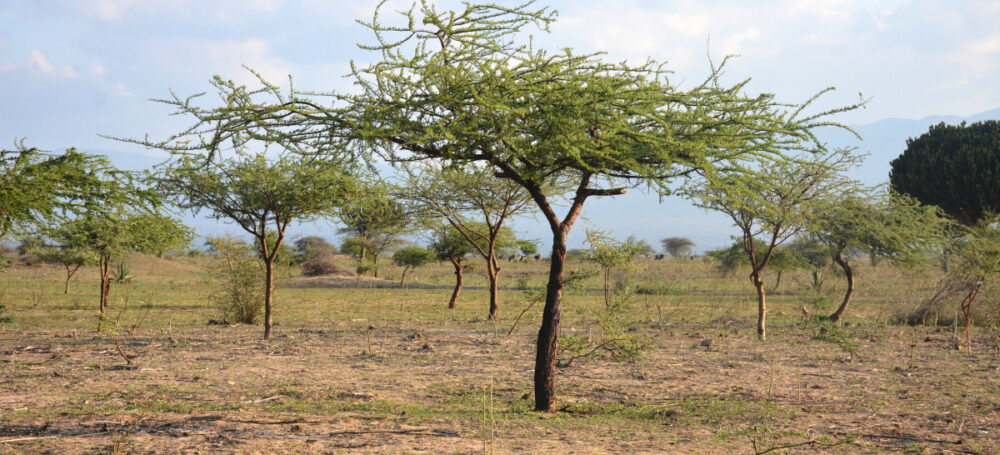𝟗.𝟏𝟓 𝐌𝐢𝐥𝐥𝐢𝐨𝐧 𝐓𝐫𝐞𝐞𝐬 is the total number of trees we have brought back together with over 𝟏𝟐𝟎,𝟎𝟎𝟎 𝐋𝐨𝐜𝐚𝐥 𝐅𝐚𝐫𝐦𝐞𝐫𝐬 in Dodoma region of Tanzania who received regreening knowledge from us, champion farmers and our wonderful partner Justdiggit . We have restored these trees in just 4 years using the 𝐊𝐢𝐬𝐢𝐤𝐢 𝐇𝐚𝐢 𝐭𝐞𝐜𝐡𝐧𝐢𝐪𝐮𝐞 commonly known as 𝐅𝐌𝐍𝐑.
FMNR is a low-cost, sustainable land restoration technique used to combat poverty and hunger amongst poor subsistence farmers in developing countries by increasing food and timber production, and resilience to climate extremes. It involves the systematic regeneration and management of trees and shrubs from tree stumps, roots and seeds. FMNR is our number one method we use in environmental conservation.
FMNR is especially applicable, but not restricted to, the dryland tropics. As well as returning degraded croplands and grazing lands to productivity, it can be used to restore degraded forests, thereby reversing biodiversity loss and reducing vulnerability to climate change. FMNR can also play an important role in maintaining not-yet-degraded landscapes in a productive state, especially when combined with other sustainable land management practices such as conservation agriculture on cropland and holistic management on range lands.
FMNR adapts centuries-old methods of woodland management, called coppicing and pollarding, to produce continuous tree-growth for fuel, building materials, food and fodder without the need for frequent and costly replanting. On farmland, selected trees are trimmed and pruned to maximise growth while promoting optimal growing conditions for annual crops (such as access to water and sunlight). When FMNR trees are integrated into crops and grazing pastures there is an increase in crop yields, soil fertility and organic matter, soil moisture and leaf fodder. There is also a decrease in wind and heat damage, and soil erosion.


Comments are closed.